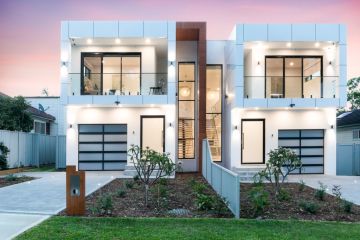New Line House: The revival of mid-century Australian architecture
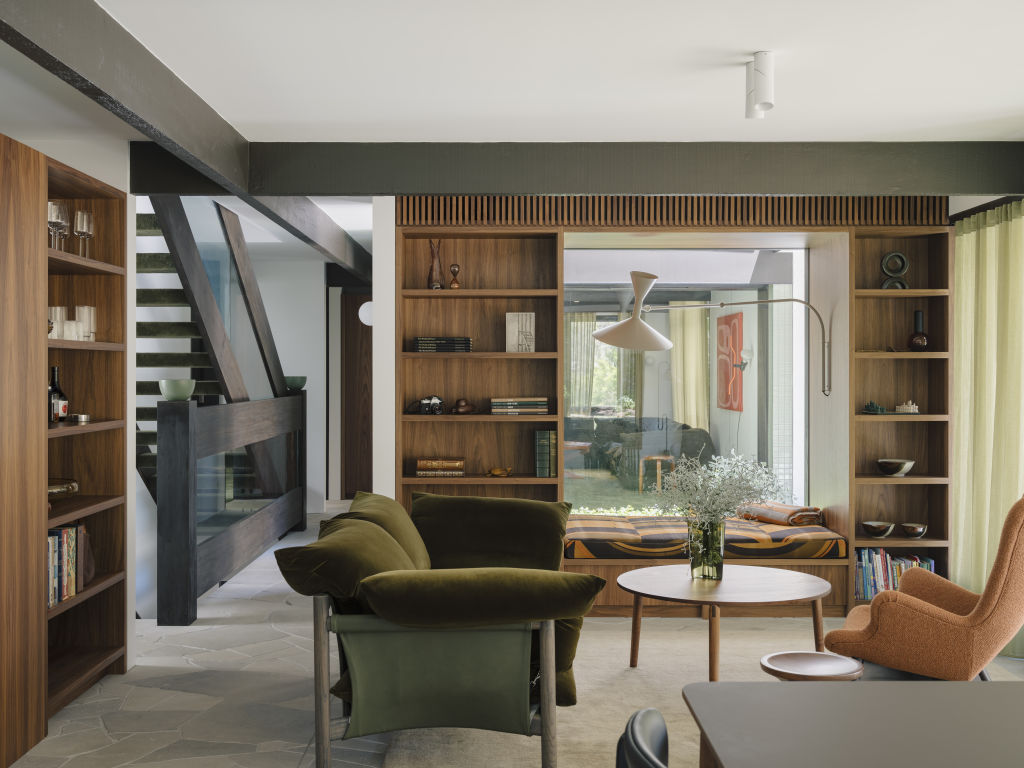
In the lush bushlands of Sydney’s East Ryde, this updated 1960s architectural gem proves that the most meaningful transformations often arise from the most personal connections.
When Studio Prineas took on the project, principal Eva-Marie Prineas discovered an unexpected link with the property’s previous owner during her first site visit.
“We realised that the client’s mother who had passed earlier that year, was in fact, my most treasured and revered high school English teacher,” she says.
This connection set the tone for a deeply personal design journey.
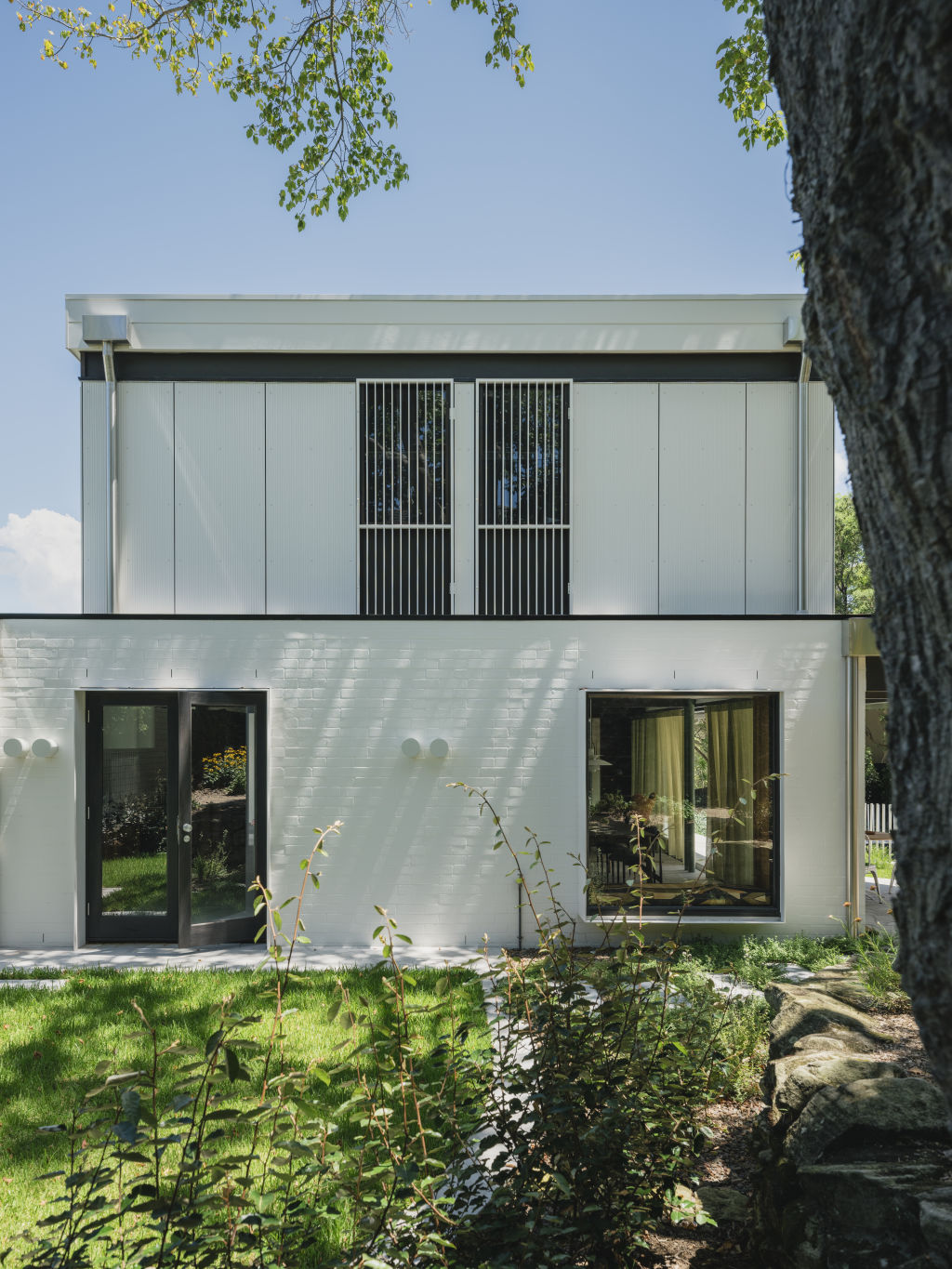
The original structure, a pristine example of Pettit & Sevitt’s The Lowline model, represents a significant chapter in Australian architectural history.
These 1960s project homes, born from collaborations with architects Ken Woolley and Michael Dysart, democratised good design by bringing quality architecture to the suburbs.
“The exterior expression was quintessentially Pettit & Sevitt,” Prineas explains, “with painted white brick, stained timber cladding, timber windows, horizontal battens and a lovely repetitious geometry from the home’s modular componentry.”
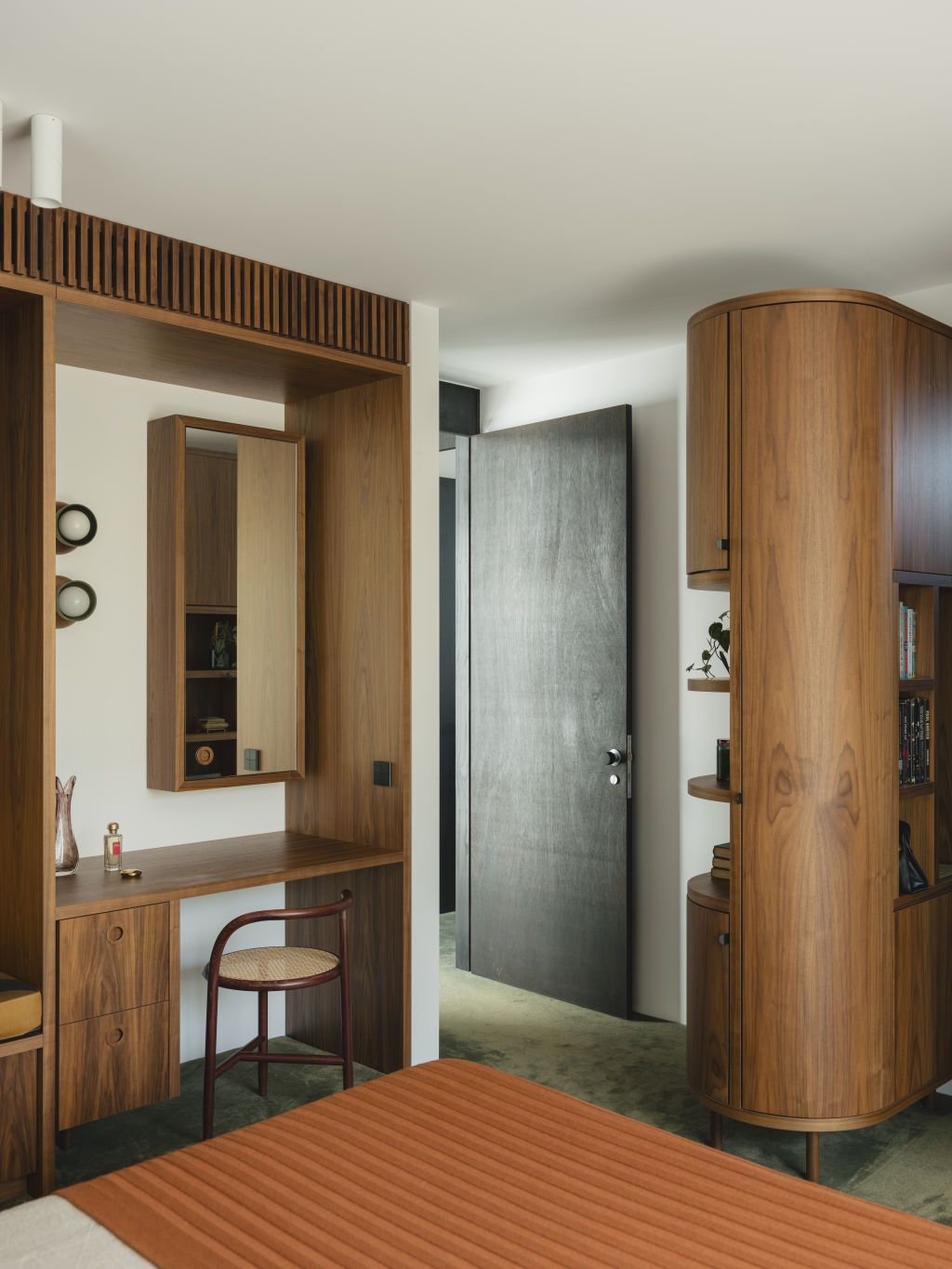
The renovation thoughtfully expands the original single-level home upward while maintaining its architectural integrity.
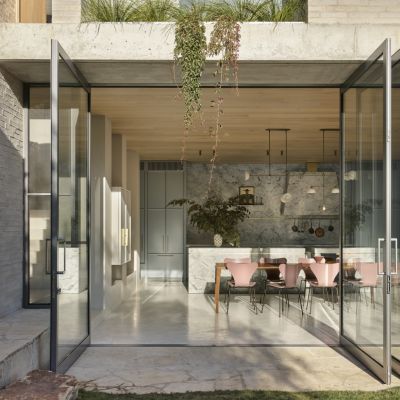 Inside Studio Tate’s Malvern Residence III
Inside Studio Tate’s Malvern Residence III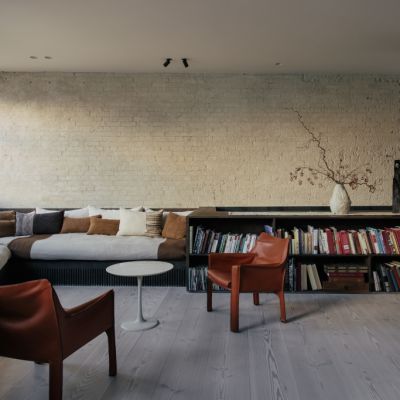 London loft embraces Japanese wabi-sabi aesthetic
London loft embraces Japanese wabi-sabi aesthetic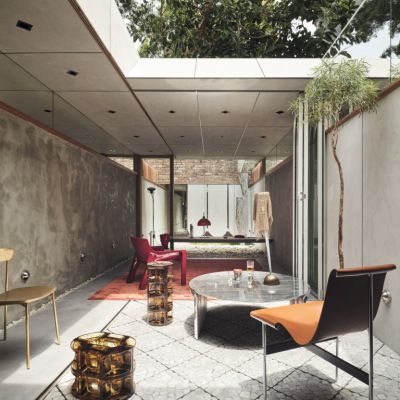 Inside a one-of-a-kind Spanish-inspired terrace in Sydney’s Chippendale
Inside a one-of-a-kind Spanish-inspired terrace in Sydney’s Chippendale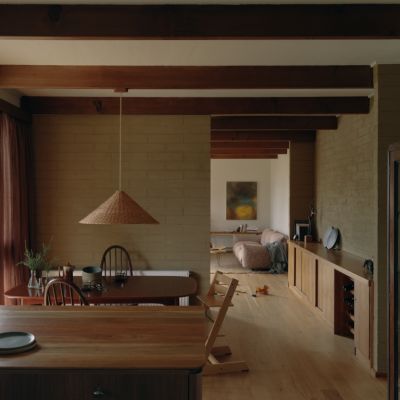 How two young architects revived their tired 1970s Melbourne home
How two young architects revived their tired 1970s Melbourne home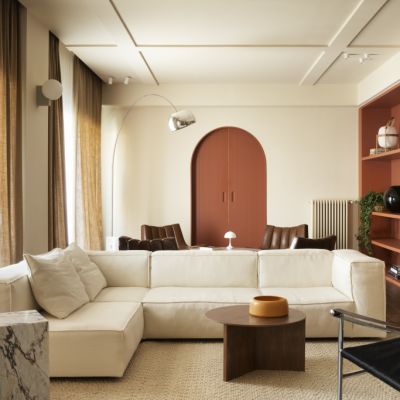 This revamped heritage apartment in Madrid offers captivating views at every turn
This revamped heritage apartment in Madrid offers captivating views at every turn
Studio Prineas aligned the new second storey with existing brick piers, using horizontal cladding for the original volume and pre-finished fibre cement sheet with vertical ribbing for the addition.
The reimagined interior creates an intuitive flow from the new entry courtyard to the northern elevation, where the kitchen, dining and sitting areas capture garden views.
Upstairs, four bedrooms and a sitting room accommodate family life, while the lower ground level houses a nanny’s quarters, wine cellar, and cinema room.
The material palette pays homage to mid-century design while introducing contemporary elements.
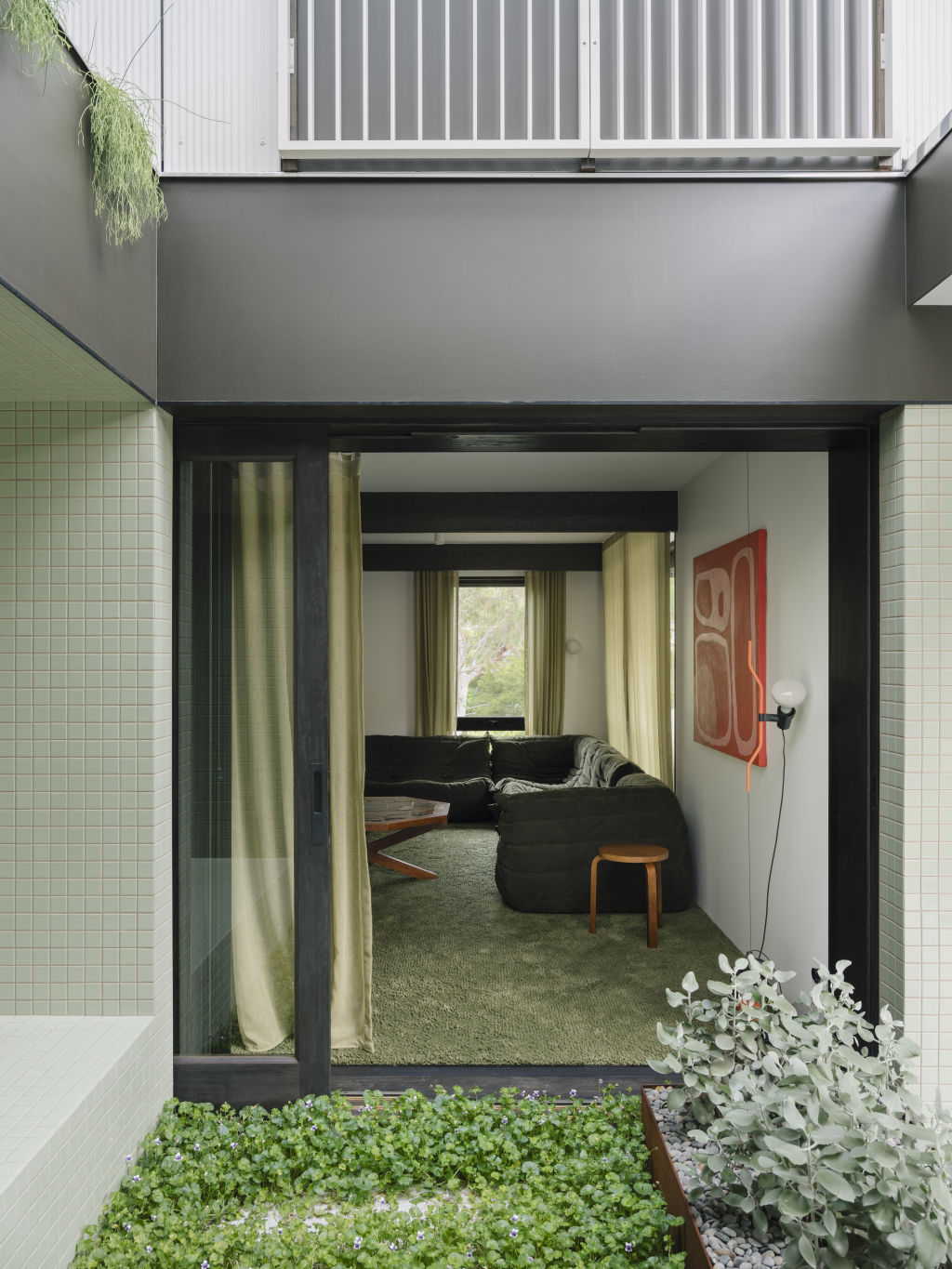
“We drew on a nostalgic palette of walnut veneer, laminate, coloured carpet, mosaic tiling and crazy paving, in tones that harmonise with the natural landscape,” Prineas says.
The kitchen features a tiled island bench with a stainless-steel inset, offering a clever reinterpretation of modernist tiled counters.
The bedroom wardrobes take their cues from free-standing mid-century built-in wardrobes with expressed laminate carcasses and timber legs.
One of the project’s most touching elements is the repurposing of original curtains as window-seat upholstery – a tender homage to the client’s cherished memories of their mother.
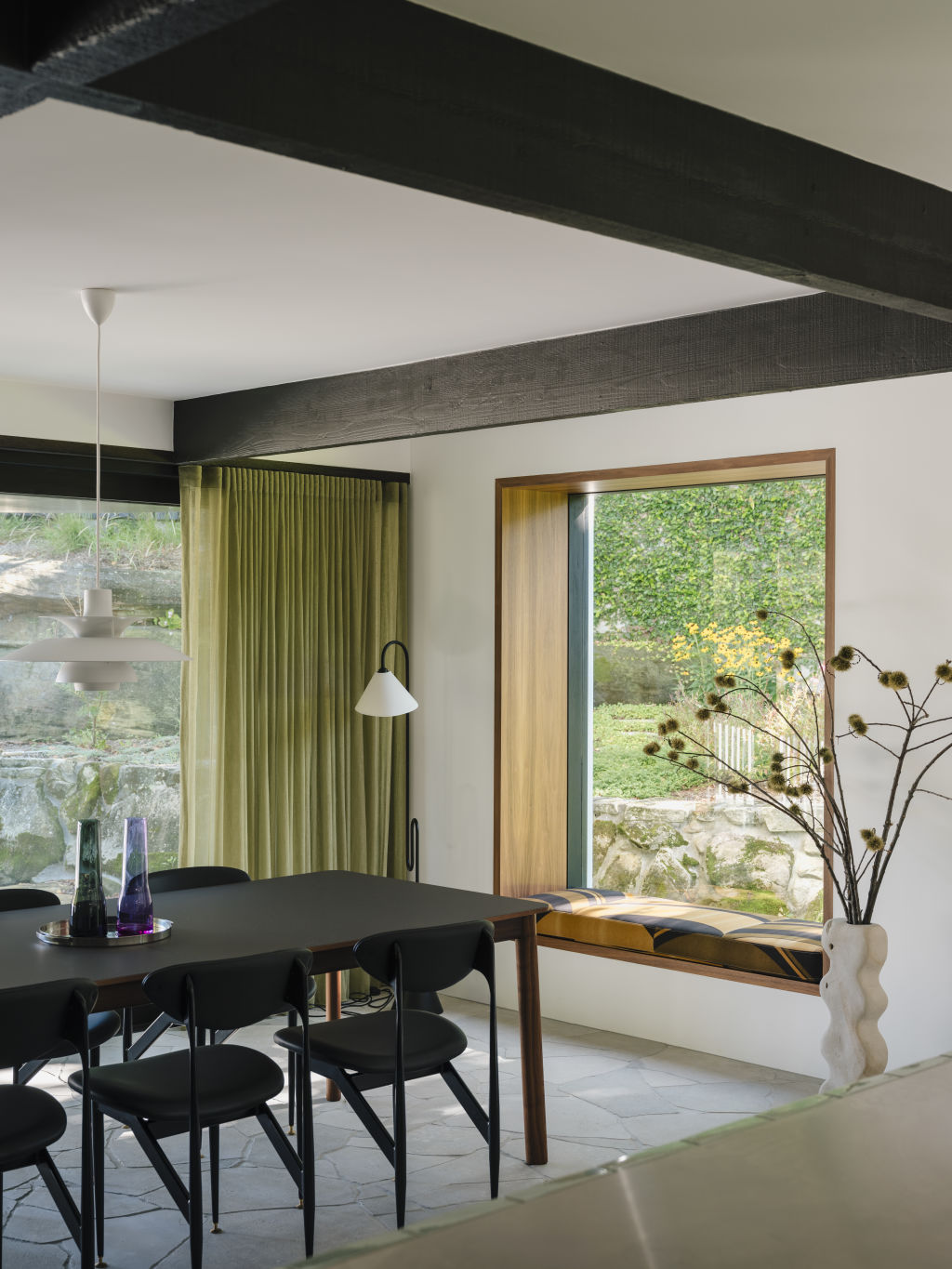
This sentimental touch is complemented by a curated selection of iconic pieces, including Louis Poulson PH5 pendants, Lampe De Marseille Mini Nemo wall lights by Le Corbusier, and Grant Featherston’s R160 Contour Chair and Scape Armchair with footstool.
The upper-level addition provides four bedrooms and a sitting room to accommodate family and guests. A large shared bathroom features a clever layout with a separate vanity for multiple users.
The outdoor spaces comprise two terraces connecting the architecture to the garden.
A large ramp ensures wheelchair accessibility, while a circular pool sits in the landscape “like a natural billabong nestled in the bush”, as Prineas describes it.
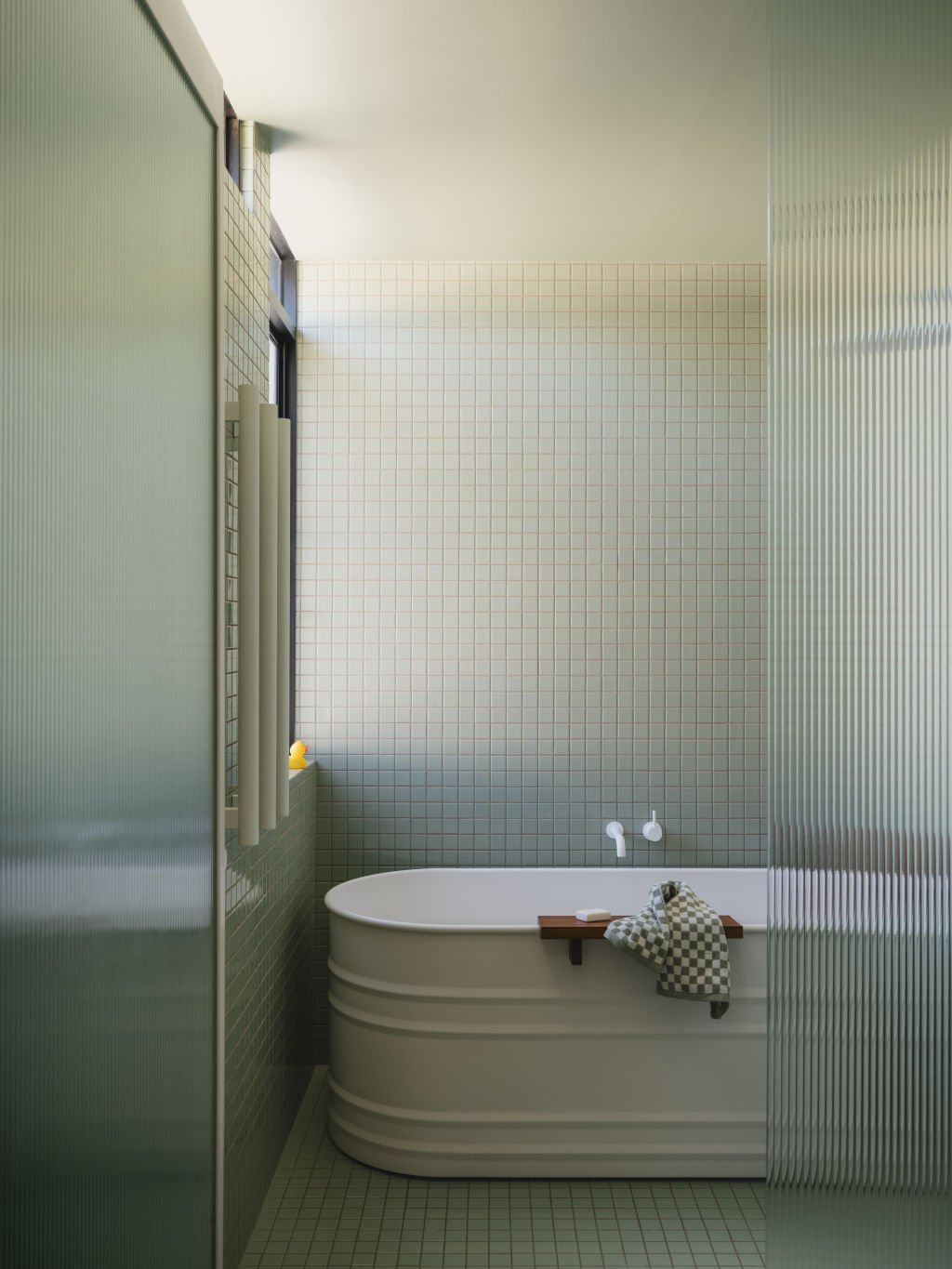
Completed while the clients were based overseas, the project exemplifies Studio Prineas’ philosophy of prioritising thoughtful preservation over excessive expansion.
“It’s important for architects to encourage their clients to think smaller and consider preservation wherever possible,” Prineas reflects. “Ultimately, good design is better than big design.”
Built on Wallumettegal country, New Line House is a compelling reminder that sometimes the most forward-thinking architecture comes from looking thoughtfully to the past, creating spaces that honour both heritage and contemporary life while writing new chapters in the stories of the homes – and the families – that came before.
We recommend
We thought you might like
States
Capital Cities
Capital Cities - Rentals
Popular Areas
Allhomes
More







